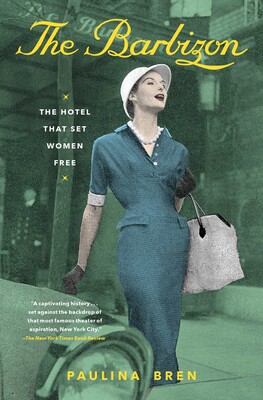In keeping with my “one book per indie bookstore per city visited” rule for my vacation last August, when my hosts took me to Book People in Austin I stood resolute to acquire one (1) book. I went in, prepared to be ruthless and discriminating in my choices, but in the end that was unnecessary because the solution presented itself almost immediately upon our entrance. And on sale, even!
While a to-read list can quickly become a graveyard of aspirations, I still find it to be a handy filter for bookstore and library visits. If I have a vague awareness of at least some books I at one point wanted to read, then it can help narrow down my browsing. That was exactly the case when I more or less walked right into The Barbizon: The Hotel That Set Women Free.
I read an excerpt from the book during its promotional rounds on Lit Hub, and thought the excerpt and the premise of the book were both interesting. On to the TBR it went. Two years later, here I am! The downside is that while I might have knocked Barbizon off my TBR, over the course of reading the book I probably added five or six other books because so many of the illustrious personages Paulina Bren outlines in the book sound like fascinating people and writers. In that sense, writing about the Barbizon is a great framework for looking at women writers from the mid-to-late twentieth century. It would be a great idea for a literary anthology or series and I wonder why no one’s done it yet.
Barbizon is a quick read; I was able to knock it out in about a day and a half. Of course, I was on vacation with bookish friends who were happy to spend hours sitting quietly and reading, so I might be overstating how snappy the pace is. Regardless, it’s a fun and breezy look at a piece of American history I’d never known about (even though I’ve read The Bell Jar) and, as I told one half of my hosting couple, it made me happy that I live here and now instead of sixty, seventy, a hundred years ago. If you plopped me in the lobby of the Barbizon hotel back in the fifties, or if I had been a college student in the sixties applying for a Mademoiselle guest editor role, I have no doubt I would have been summarily dismissed and rejected for not being pretty enough. Nor would I have been cut out to be a homemaker or mother, which even the most talented and ambitious women who boarded at the hotel seemed to inevitably become. (And yet, with all of this freedom and free time available to me, I fritter it all away on nonsense. But that’s another issue entirely!)
If only the world weren’t on fire…!

